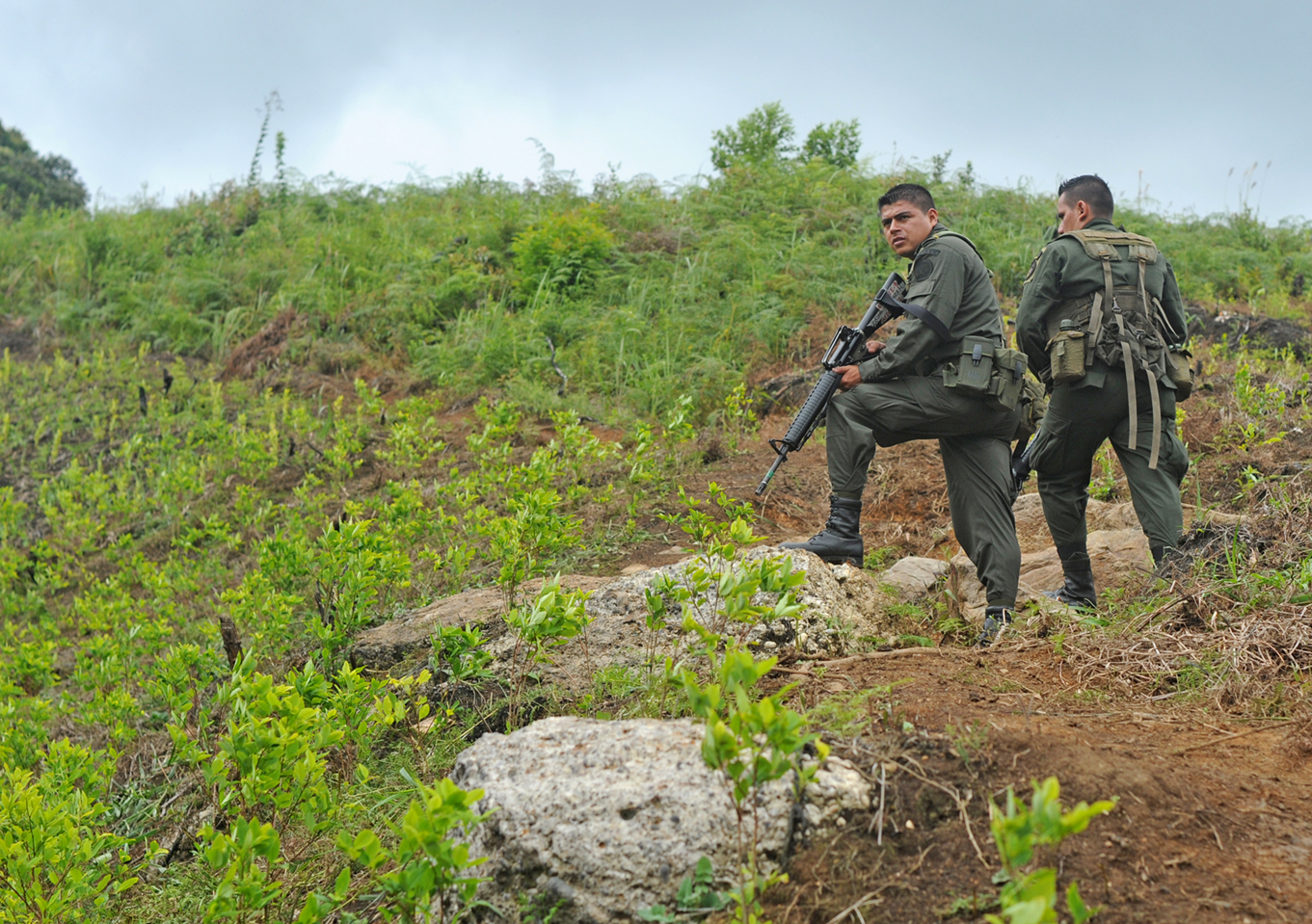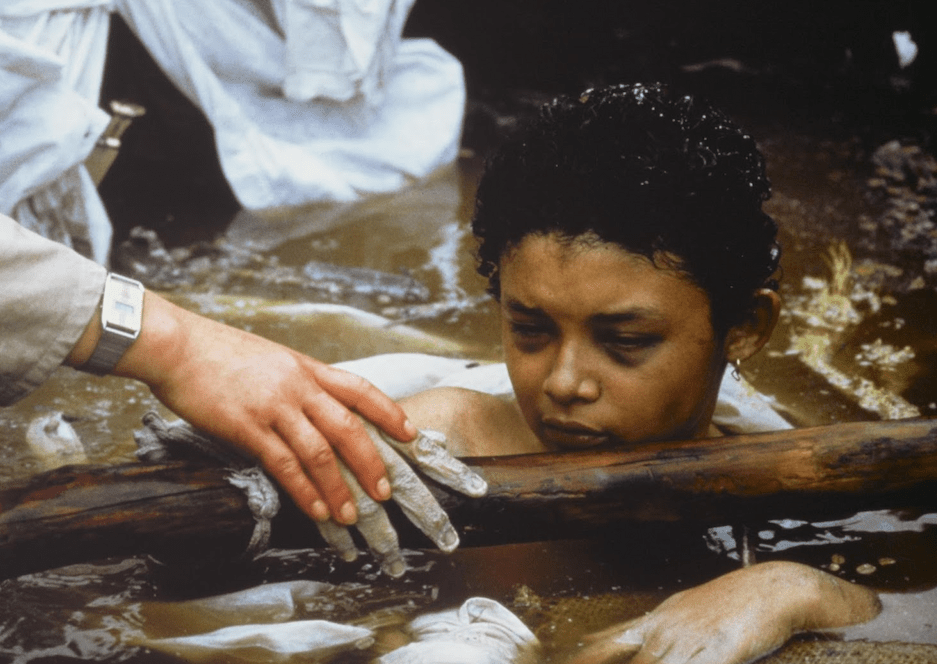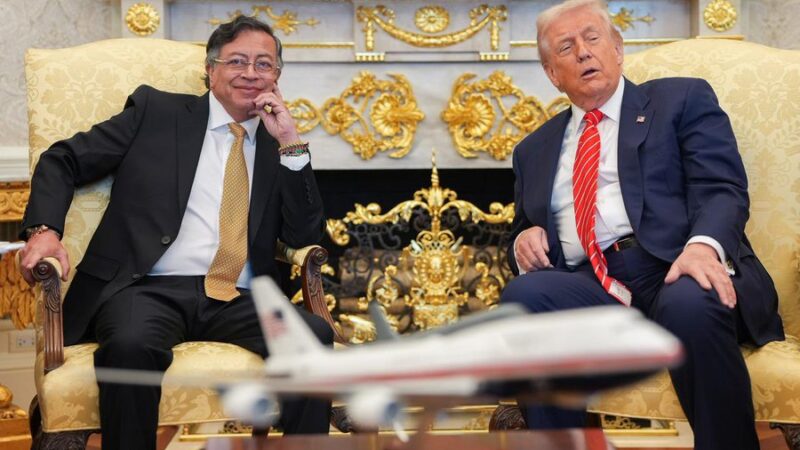
The United States has decertified Colombia’s counter-narcotics efforts for the first time in nearly three decades, a move that threatens to destabilize one of Washington’s closest security partnerships in Latin America and cut off millions in aid.
The decision, announced late Monday by the U.S. State Department just hours before the Sept. 15 deadline was to expire, places Colombia alongside Afghanistan, Bolivia, Burma and Venezuela as countries that “failed demonstrably during the previous 12 months to both adhere to their obligations under international counter-narcotics agreements.”
While the declaration constitutes a sharp rebuke of President Gustavo Petro’s leftist government, Washington also extended an olive branch by recognizing Colombia as “vital to U.S. national interests.” The so-called waiver allows continued military assistance and support for manual coca eradication, softening the impact of a measure that could otherwise block access to multilateral financing and trigger trade sanctions.
The decertification marks the first time since 1994 that Colombia has been penalized under U.S. anti-drug legislation. Previous administrations had routinely certified efforts from Bogotá, even as coca cultivation surged, citing cooperation and the deployment of tens of thousands of troops in manual eradication campaigns.
“This is a major shift in the relationship,” said a former U.S. diplomat familiar with bilateral drug policy. “Decertification is a tool Washington rarely uses on an ally of this importance. It signals frustration with the lack of progress and with Petro’s broader regional alignments.”
In its statement, the State Department pointed to record-high coca crops, estimated at more than 260,000 hectares, and said Colombia had not met even its reduced eradication goals.
“Under President Petro, coca cultivation and cocaine production have reached historic highs, while failed attempts to negotiate with narco-terrorist groups have only exacerbated the crisis,” the department said. “This undermines the long-standing beneficial cooperation between our countries against narcoterrorism.”
During a televised cabinet meeting on Monday, Petro confirmed the decertification, accusing Washington of ignoring Colombia’s sacrifices. “The United States decertifies us after the deaths of dozens of police, especially soldiers, and ordinary people trying to prevent cocaine from reaching them,” he said.
Minutes later, the presidency posted his remarks on social media, adding that the decision came “despite the sacrifices Colombia has made in the fight against drug trafficking.”
Petro also announced that Colombia would move to reduce military dependence on U.S. weaponry. “No more handouts or gifts,” he declared. “We will end the dependency of Colombia’s Armed Forces on U.S. arms.”
Even though the decertification with exceptions could jeopardize about $453 million in U.S. economic and security assistance, it could also complicate access to loans from international financial institutions such as the IMF and World Bank if Washington were to press for punitive measures.
“An eventual decertification would be terrible not only for Colombia and the United States, but for the hemisphere and the world,” Colombian Ambassador to Washington Daniel García-Peña told local media before the announcement. He stressed that regardless of the outcome, the bilateral relationship “must continue to be strengthened, because both countries share strategic interests in common.”
Under U.S. law, the president may choose between three options each September: full certification, decertification with a waiver for vital national interests, or full decertification with punitive measures. Colombia received the middle option, sparing it the harshest consequences for now.
Republican lawmakers welcomed President Trump’s move. Senator Rick Scott of Florida, an outspoken critic of Petro, told Colombia’s news outlet Semana that the Colombian president’s policies had failed to curb drug output.
“The president you currently have is terrible and is not reducing the numbers in drug production, and that’s a problem, because people here in the United States lose their lives as a result of those actions,” Scott said.
He warned that continued ties with Venezuelan President Nicolás Maduro and Nicaraguan President Daniel Ortega could further isolate Colombia. “If Petro continues on this path, we will have to reconsider, because dollars from our government will no longer flow in the same way to Colombia,” Scott said. “Foreign investment would shrink, and tourists are going to stop traveling to Colombia.”
Democrats have voiced concern about cocaine flows but have been more cautious in criticizing Petro directly, mindful of his popularity among progressives and his role as a key player in regional peace talks.
Colombia has long been Washington’s top security partner in Latin America, receiving more than $13 billion in U.S. aid since the launch of Plan Colombia in 2000. The country has served as a base for U.S. counternarcotics operations and a model for military cooperation.
Petro’s push to redefine the relationship — reducing reliance on eradication and calling for a global rethink of drug policy — has put him on a collision course with traditional U.S. priorities.
For now, the waiver ensures that military cooperation and aid continue. But as Colombians head to a general election next year, the U.S.-Colombia relationship is expected to become a central issue in campaigns, particularly how to curb coca crops that finance the expansion of illegal armed groups.
“The waiver is a lifeline,” said Adam Isacson, a regional expert at the Washington Office on Latin America. “But if coca numbers don’t come down and violence continues, the pressure will mount for stronger action. This could be just the beginning of a much rockier period in U.S.-Colombia ties.”
Share this story
The City Paper Staff
View all posts by The City Paper Staff










